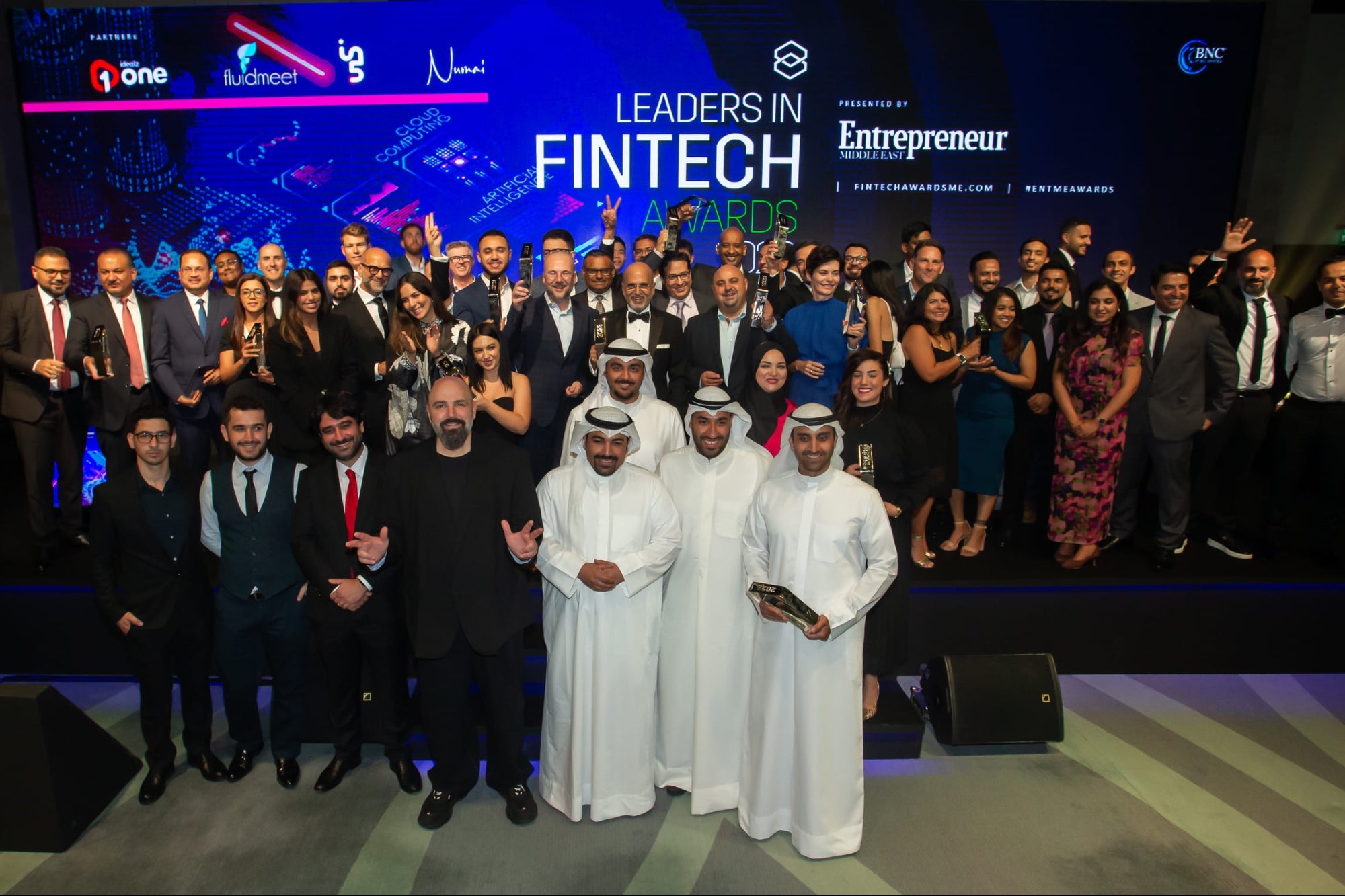How To Master The Ebb And Flow Of A Hyper Growth Startup Every hyper growth can be dizzying, disorienting, and takes an immense amount of innovation and talent.
By Nelio Leone
Opinions expressed by Entrepreneur contributors are their own.
You're reading Entrepreneur Middle East, an international franchise of Entrepreneur Media.

What a couple of weeks it's been for the ride-hailing industry. In March, Uber announced its US$3.1 billion acquisition of Careem, an enormous success not only for the two companies, but the region as a whole. The deal is the biggest the Middle East has ever seen, surpassing Amazon's earlier acquisition of Dubai-based Souq.com for $580 million, and it is bound to impact Uber's upcoming initial public offering. Speaking of, Lyft went public as well in an IPO that valued the company at more than $24 billion, the largest initial public offering in the last decade.
What can be attributed to their success? Hyper growth. I was lucky enough to be a part of Careem's hyper growth journey from 2015 to 2017, and I witnessed firsthand the results it can achieve. I also realized quite early on that hyper growth can be dizzying, disorienting, and takes an immense amount of innovation and talent. Here are the top lessons I learned as a result:
LESSON 1: MOMENTUM IS CRUCIAL- SO IS MOVING AT THE SPEED OF LIGHT
At Careem, our tagline, "Yalla, let's go," became a way of life. Initiatives that would take months to implement in more established organizations would take merely days at Careem. This type of speed and momentum is crucial for any hyper growth startup. Take your foot off the gas, even for a second, and it could be the end of your journey. Momentum, however, doesn't mean you should pursue every opportunity that presents itself. Saying yes to everything, whether it's a new partnership with a popular brand or a new product feature, will take your attention away from what really matters- delighting your customers, and in Careem's case, providing the region with better quality of life. The minute we lost focus of our mission, the minute we lost momentum where it mattered. So, identify the metrics or goals that matter most to your mission, and focus solely on achieving them, and fast. At the beginning of each week, have your team revisit the goals and metrics from the previous week, and then determine the next set of metrics before moving on to execution. Execute fast. Don't execute dumb.
LESSON 2: IF YOU AREN'T HAVING FUN, IT ISN'T GOING TO WORK
Moving quickly is not only hard, but also stressful, and there were days when I questioned whether the long hours and rigorous job duties were worth it. But there were more days when I left the office energized. I believed in Careem's mission and in what we were building, which in turn, made it fun. If you don't believe in the company's mission or its founders, work will wind up feeling like any other chore, and soon, you'll be miserable. So often, new hires would start at Careem and quickly realize that this wasn't a company where you could leave at 5pm every day. Rather than use that fact to complain, find the positive alternative. For me, it was always about working toward moving the region forward, and the energy that came with that belief led to more fun than pain.
LESSON 3: THE AGE-OLD ADVICE, "LEARN FROM YOUR MISTAKES," STILL APPLIES
If you're not making mistakes, then you're probably not working for a hyper growth startup. We made mistakes sometimes on an hourly basis at Careem, but rather than simply moving on once they happened, we made sure to acknowledge why it was a mistake, and how we could prevent it from happening a second time around. We asked questions like, "Why didn't that advertisement attract more customers? Was is the phrasing we used? Or maybe it was the image that didn't resonate with the audience?" Always take the time to assess the situation, and review what worked and what didn't. Yes, mistakes are okay, but if you let them pile up without acknowledging what caused them, at some point, they're going to start costing you. So, reach out to unhappy customers, talk to your teammates. Do things that don't scale and figure out how to resolve an issue. From one f***-up, you can learn a set of invaluable insights. Make mistakes, learn from them, and achieve long-term success.
LESSON 4: BE WATER, MY FRIEND
Early on, Careem grew consistently at 40%+ every month. Such accelerated growth meant a lot of adjustments and optimizations to my job description, my teammates, my boss, the office space, even the coffee machine! And I had to learn to be comfortable with it all- to go with the flow. Adaptability is key in any hyper growth startup, and there may even come a point where you've made so many changes to your product or service that you no longer recognize it, but that's part of the journey. You'll feel overwhelmed and confused at times, but as long as you learn to be comfortable with the uncomfortable, clarity will present itself. There is this one example I remember. We had worked extremely hard on analyzing and revamping every step of the customer onboarding just to realize that all our time was wasted. We understood the real problem came from the acquisition of a whole lot of wrong customers. So, we had to shift our focus completely. Switching gears too often is never too pleasant for anyone. Especially after having worked day and night to fix what was not to be fixed in the first place. Pivoting, iterating, shifting, and reshuffling is part of the process. Don't fear change. You better deal with it. Be like water, my friend, and embrace it.
LESSON 5: YOUR MENTAL AND EMOTIONAL RESILIENCE WILL BE TESTED
Hyper growth is an extreme sport. It stretches your skills, abilities, and mental resilience beyond what you previously thought was possible. Not just during periods of growth, either. In fact, it's typically when the company begins to lose the momentum that challenges you the most. For instance, in December 2016, Careem hit a major milestone. We had just raised $350 million, bringing our valuation to $1 billion. We were officially a unicorn, present in 11 countries and 47 cities. At the same time, our position in one of our key markets was starting to plateau, and we were facing heat from regulators. Tensions were high, and teams began to disagree on the best path forward. How did we resolve the situation? We realized we were too concerned about external forces, and as a result, we weren't being true to our brand. Just a few months prior to the capital raise, we had unveiled a new brand identity (the green wink), which symbolized the simplicity of technology and the positive impact it was creating in the region. Getting back to hyper growth mode required a return to our roots, and a return to our unique values.
LESSON 6: LEAVE YOUR EGO AT THE DOOR
Nine out of ten startups will fail, and I'd like to bet ego has a lot to do with it. So many founders get caught up in the fact that it's their company, their idea, and suddenly, the hard work of every other employee is forgotten. Luckily, that was never the case at Careem, and the cofounders, Mudassir Sheikha, Magnus Olsson, and Abdullah Elyas, are some of the most humble and down-to-earth people I know. But I did see plenty of ego within individual departments at Careem. Ego in any form in a hyper growth environment is a toxic, expensive burden that damages employee morale and hinders execution, but it can't always be avoided. As your company grows, it's going to attract better and more experienced talent, and people who are used to being the smartest in the room. If you find yourself in the midst of someone with an ego, play to their strengths, but within a team-oriented setting. Assign everyone on the team a specific role, and congratulate everyone once the job is done. Careem's success can be attributed to its strong mission and values, but also to the fact that it encouraged teamwork every step of the way. No one's work was more important than anyone else's. I still remember the proud look in the eyes of one of our Captains (drivers) when our founder Mudassir was praising his hard work in his own mother tongue. A humble attitude can foster growth. Ego can easily kill it.
Related: Careem: It's Full Speed Ahead For This Middle East Startup
LESSON 7: MAKE A LIST OF YOUR PRIORITIES, AND STICK TO THEM
Choosing to work for a startup often means giving up a healthy work-life balance, but it doesn't mean your priorities have to suffer. It just means you might have to work a little harder to keep them as your priorities. At Careem, our motivation to "make the baby fly," as we'd say internally, drove much of our daily life. Health, family, friends- these were all things that barely existed during my first year with the company. It's cliché, but we ate, drank, and slept Careem. As I'm sure you can imagine, this mindset wasn't healthy, and our sole focus on Careem had diminishing returns. Therefore, put a limit on yourself. Yes, extreme dedication is paramount to a startup's success, but it's equally important to take time to disconnect to recharge, as it'll only help you put better work back into the company. Eating unhealthy fast food, working non-stop for several hours hunched on a laptop, and lack of sleep was literally sucking the life out of me. I started becoming groggy, my decision making became clouded, and even my emotional quotient started suffering. I would be harsh on my teammates and family at home. Even my fitness condition started to decline. That's when I realized I had to re-prioritize. At the end of the day, you can only do so much, and believe me, losing focus on what really matters in life comes at a very high price!
LESSON 8: RECOGNIZE WHEN IT'S TIME TO MOVE ON
My two years at Careem were some of the best of my life, and for the most part, work never felt like work. I joined at such an early stage that I felt a deep sense of ownership toward the company, but even owners have to move on at some point. You might notice it only slightly at first. A gut feeling hinting that something isn't right, or that things aren't the same anymore. For me, that moment came the minute we reached nearly 3,000 employees. I had joined when we were barely 20. I remember walking through the office that day, and not recognizing a single face, and I knew my journey was coming to an end. I still felt a connection to the company's mission (and still do), but I no longer connected with my teammates. I realized I had a strong desire to start something from the beginning again. If you think you're starting to feel the same about the company you work for, pay attention to your gut. If something doesn't feel right, it usually isn't. And ask yourself whether you're still learning as much as you were a couple of months ago. Has the hyper growth stage come to an end? Or is it just that you're ready for a new challenge? Working for a hyper growth startup taught me more about business, marketing, and myself than I ever could have imagined, and it's these lessons that have prepared me well for my next step in lifesearching for hyper growth all over again, but this time as an entrepreneur.












